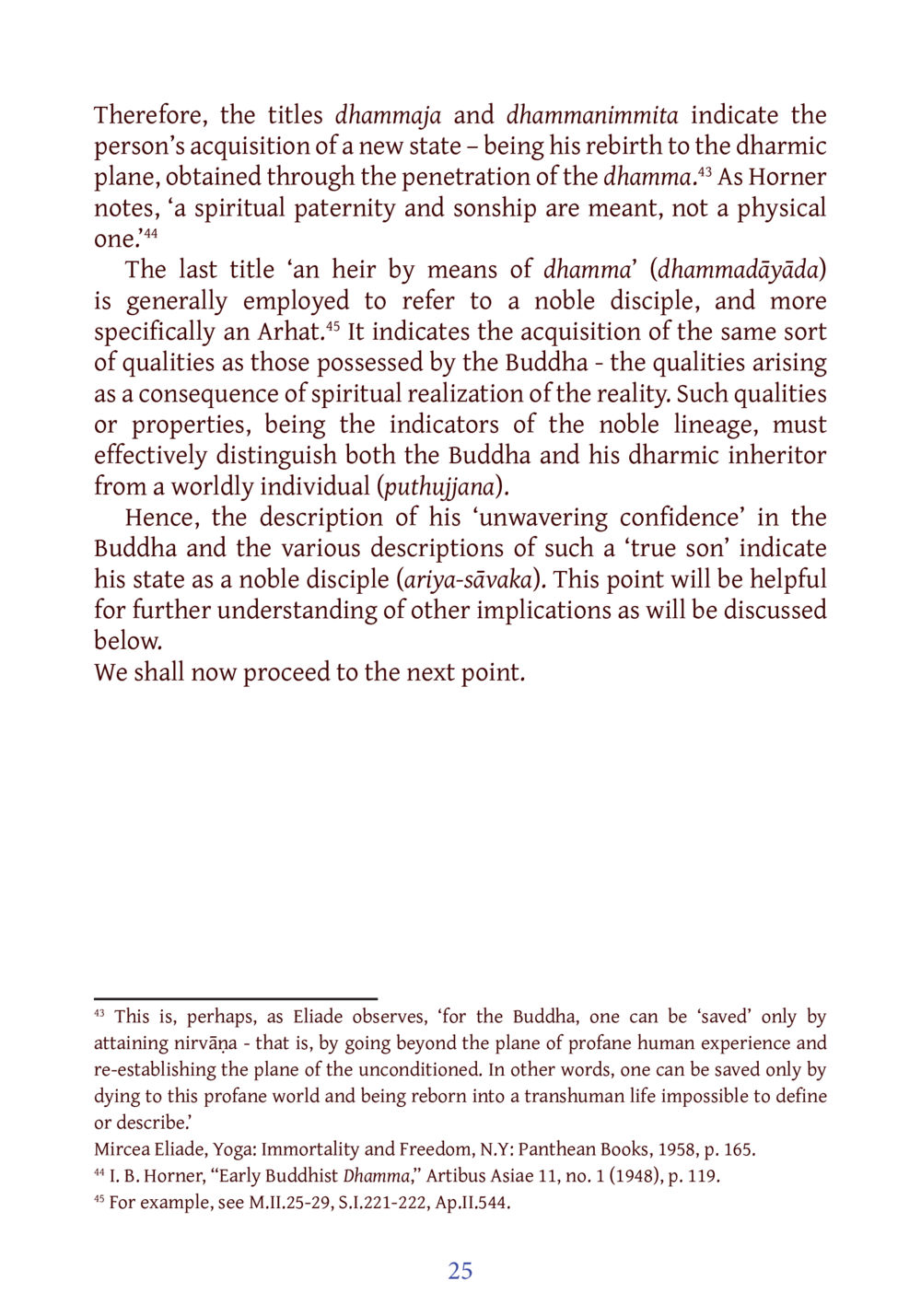Buddhism and the Concept of Nirvāṇa : หน้า 46/141
DIRI Journal : หน้า 46/141 Exploring the Buddhist concept of nirvāṇa as a state beyond profane existence.
0 ครั้ง

สรุปเนื้อหา
Eliade suggests that for the Buddha, salvation comes through attaining nirvāṇa, transcending the mundane aspects of human life and entering an unconditioned state. This transformation entails a metaphorical death to the ordinary world and a rebirth into a profound, indescribable existence. This notion aligns with interpretations found in various early Buddhist texts.
หัวข้อประเด็น
-Buddhism and nirvāṇa
-Mircea Eliade's influence on Buddhist thought
-Concept of transhuman life in Buddhism
-Spiritual significance of rebirth
ข้อความต้นฉบับในหน้า
**43** This is, perhaps, as Eliade observes, ‘for the Buddha, one can be ‘saved’ only by attaining nirvāṇa - that is, by going beyond the plane of profane human experience and re-establishing the plane of the unconditioned. In other words, one can be saved only by dying to this profane world and being reborn into a transhuman life impossible to define or describe’.
Mircea Eliade, *Yoga: Immortality and Freedom*, N.Y: Panthean Books, 1958, p. 165.
**44** I. B. Horner, “Early Buddhist Dhamma,” Artibus Asiae 11, no. 1 (1948), p. 119.
**45** For example, see M.II.25-29, S.I.221-222, Ap.II.544.
หน้าหนังสือทั้งหมด

1

2

3

4

5

6

7

8

9

10

11

12

13

14

15

16

17

18

19

20

21

22

23

24

25

26

27

28

29

30

31

32

33

34

35

36

37

38

39

40

41

42

43

44

45

46

47

48

49

50

51

52

53

54

55

56

57

58

59

60

61

62

63

64

65

66

67

68

69

70

71

72

73

74

75

76

77

78

79

80

81

82

83

84

85

86

87

88

89

90

91

92

93

94

95

96

97

98

99

100

101

102

103

104

105

106

107

108

109

110

111

112

113

114

115

116

117

118

119

120

121

122

123

124

125

126

127

128

129

130

131

132

133

134

135

136

137

138

139

140

141
หนังสือที่เกี่ยวข้อง
Load More
